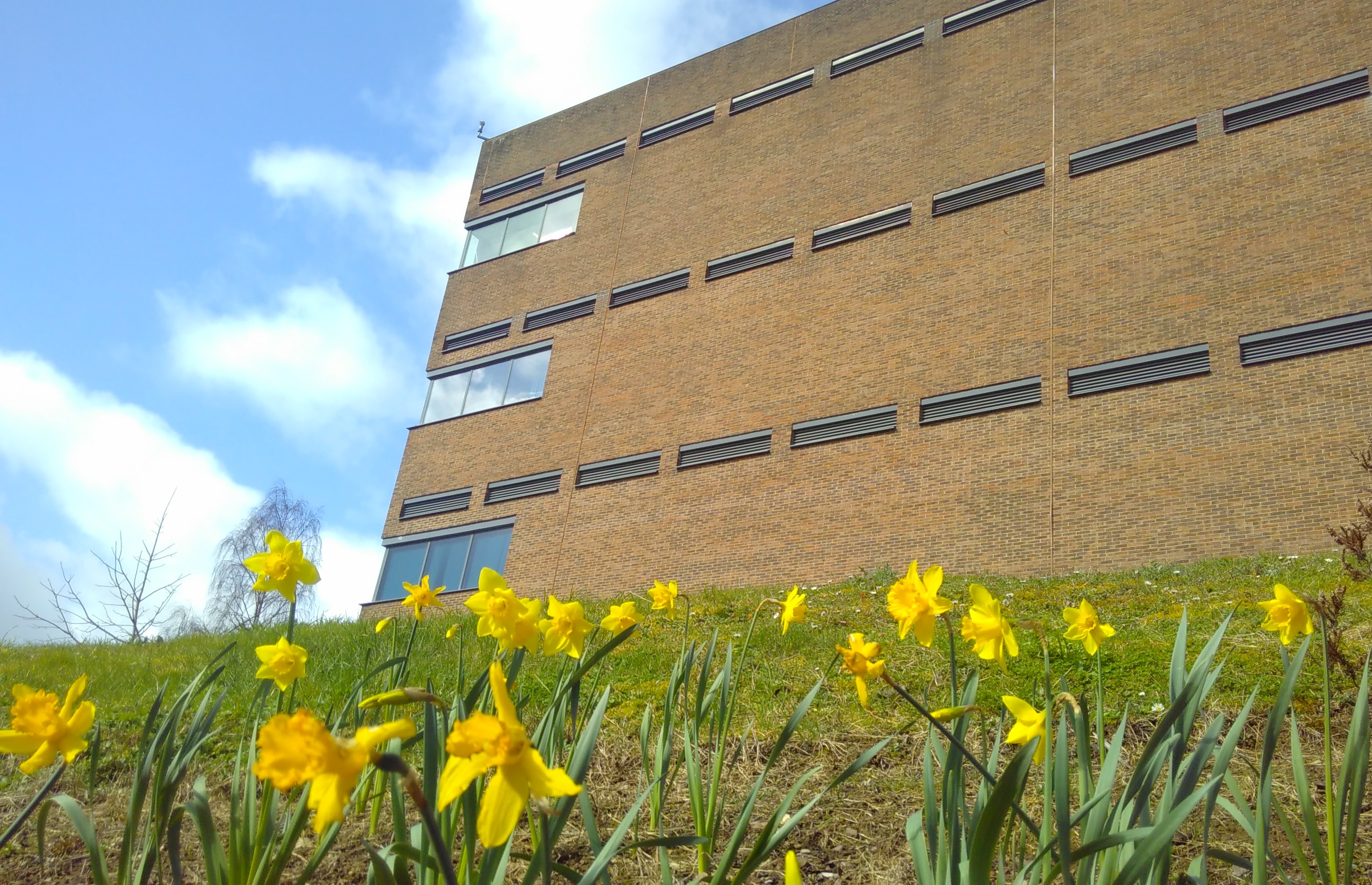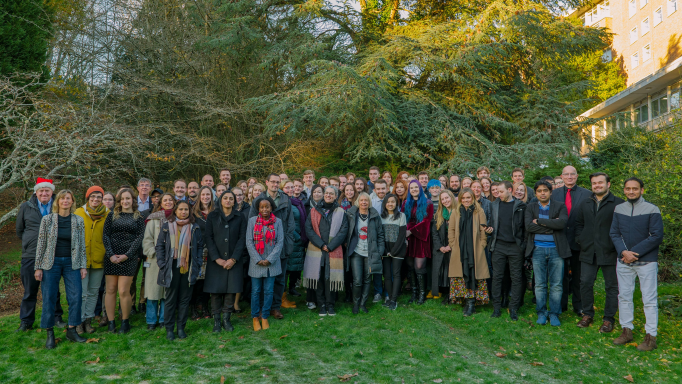
Update from the Directors, antimicrobial resistance, new Fellow, Microbiology Society Podcast, latest publications, our online webinars, Cryptococcal Meningitis, vacancies.
.jpg)
Update from the Directors, UK Fungus Day, Vacancies and Studentships, Noah's Pink Balloon fellowship, Fungal Infection in Paediatrics course withPenta

Update from the Directors, Pharmakon launch, British Society for Medical Mycology Annual Scientific Meeting, Tom Harrison elected as Fellow of the Academy of Medical Sciences, publications, vacancies, webinars.

Update from the Directors, tackling emerging co-infections, Our Body is a Planet film, latest publications, MSc in Medical Mycology, Mycotalks, vacancies, British Society for Medical Mycology annual meeting

Update from the Directors, new qualifications in Medical Mycology, sculpting medical mycology, world antimicrobial resistance week, LEAF accreditation

Update from the Directors, vacancies, PhD opportunities, clinical webinars, commissioned sculpture.
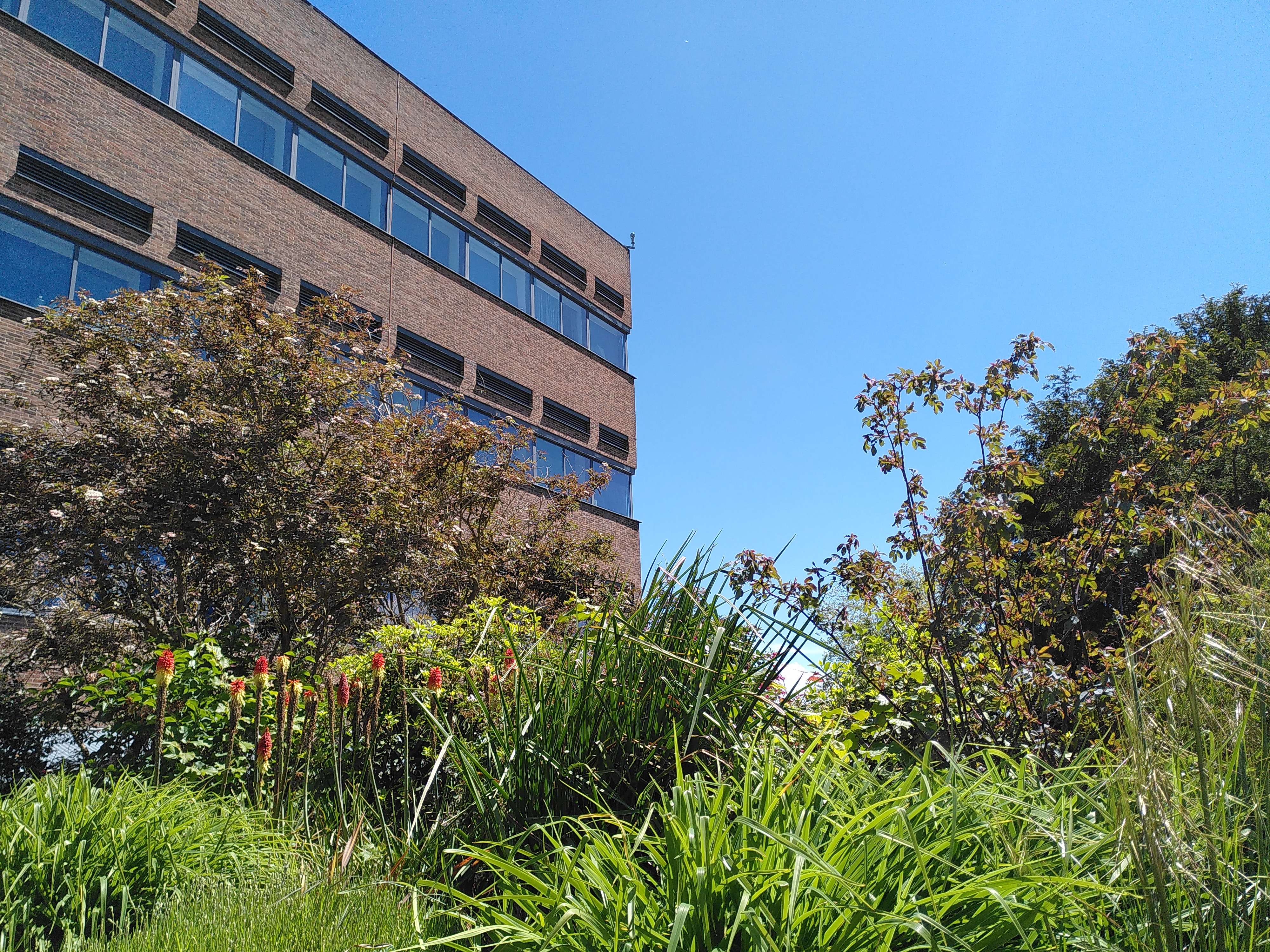
Update from the Directors, vacancies, new public engagement resources, Adilia Warris wins Bill Marshall award, new season of Mycotalks.
Update from the Directors, Elizabeth Ballou joins MRC CMM, COVID-19 associated pulmonary aspergillosis (CAPA), South African Society for Microbiology Conference, artist in residence, MRes.

Updates from the Directors, vacancies, MRes, Medical Mycology Trainee Seminar Series, researcher spotlight Beth McCann
Latest news

Prof Sean Wasserman appointed as MRC CMM Honorary member
Prof Sean Wasserman appointed as Honorary Professor at the University of Exeter and the MRC Centre for Medical Mycology.

Dr Johannes Rack awarded prestigious MRC Career Development Award
Dr Johannes Rack has won a prestigious MRC Career Development Award with MRC CMM entitled “Control of genomic integrity and virulence of Aspergillus fumigatus by ADP-ribosylation.”
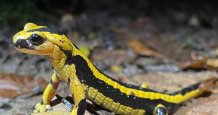
‘Jumping genes’ help fungus kill salamanders
A fungus that infects salamanders contains multiple copies of the same “jumping genes”, scientists have discovered.

World Aids Day: Crowdfunder launched for lifesaving research into deadly meningitis in HIV
A new University of Exeter crowdfunder has been launched in time for World Aids Day (Thursday December 1), to fund vital research and education aimed at stopping all deaths from a form of meningitis that is deadly to those living with HIV by 2030.
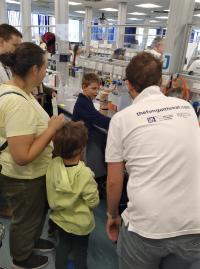
UK Fungus Day 2022 - the CMM celebrates with an Open Doors Event
The MRC CMM opened its doors to the public for the first time to celebrate UK Fungus Day.

Formal recognition by the WHO of the global burden of human fungal diseases
This week the World Health Organisation (WHO) published the Fungal Pathogen Priority List (FPPL) to guide research, development and public health action in tackling these pathogens.

Fighting Fungi at university labs at family event for UK Fungus Day
World-leading fungi research is being showcased in a fun and innovative way at a family fun event to mark UK Fungus Day.
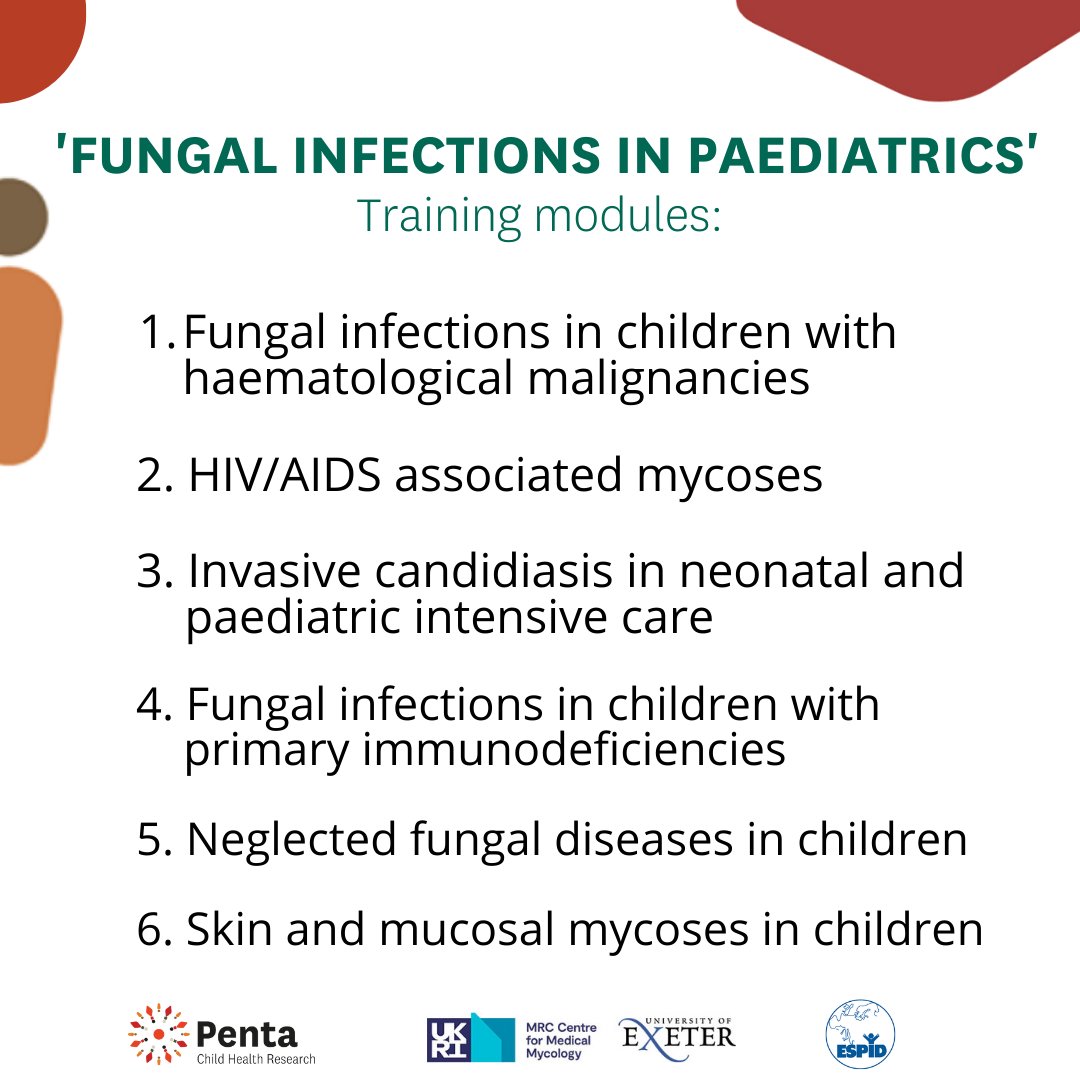
Fungal Infections in Paediatrics" course launched in partnership with Penta
The MRC Centre for Medical Mycology at the University of Exeter, in partnership with Penta, launched their new course “Fungal Infections in Paediatrics”.

Exeter academic awarded grant to research a new fungal lineage
A University of Exeter academic has won a Wellcome Trust Career Development Award to research an antifungal-resistant lineage of fungi.

Boy (5) with leukaemia dies of fungal infection: Researcher appointed to help improve diagnosis
A charity set up in memory of a five-year-old boy has funded a researcher to work on finding answers to the deadly fungal infection that claimed his life.

Exeter researcher wins Lister Prize
A University of Exeter researcher has won the prestigious Lister Prize to support her research into fungal pathogens.

Evocative new sculpture to be unveiled at the University of Exeter
An unusual and thought-provoking new sculpture, created to characterize how science is confronting one of the world’s biggest threats to human health and food security, is set to be unveiled at the University of Exeter.

MRC CMM Member is elected as a Fellow of the Academy of Medical Sciences
Professor Tom Harrison, one of the Principal Investigators of the MRC Centre for Medical Mycology, has been elected as a Fellow of the Academy of Medical Sciences.

Researchers discover drug-resistant environmental mould is capable of infecting people
A new study led by Imperial College London, working with the University of Exeter, finds that drug-resistant mould is spreading from the environment and infecting susceptible people’s lungs.
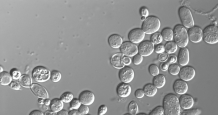
Whole-genome sequencing reveals new secrets about killer fungus
New research from the University of Exeter reports largest ever whole-genome sequencing project for the potentially fatal yeast infection Candida glabrata from hospitals across Scotland
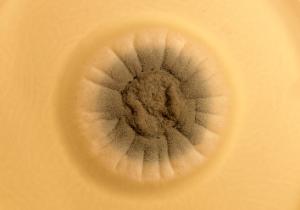
Our Body is a Planet
The short film "Our Body is a Planet" is the result of the MRC Centre for Medical Mycology’s exploratory artist’s residency with Devon-based artist Léonie Hampton of Still/Moving, in partnership with Arts and Culture, University of Exeter.

Three Exeter researchers win Discovery Fellowships
Three University of Exeter researchers have been awarded prestigious Biotechnology and Biological Sciences Research Council (BBSRC) Discovery Fellowships.

How do pathogens learn to be pathogens: partnerships between microbes leading to human disease
New research discovered that the fungus Rhizopus fights back against soil predators and human immune cells by partnering with a bacteria called Ralstonia in a two way partnership.

Bid to discover how immune systems recognise fungal invaders
A new research programme aims to define the vital first step in how human immune systems recognise fungal invaders.

Sculpting Medical Mycology - New sculpture commission at the University of Exeter
The Medical Research Council Centre for Medical Mycology (MRC CMM) at the University of Exeter will be working with Still/Moving to create a sculptural installation as a means of stimulating thinking and engagement with research undertaken by the Centre, whilst sharing a positive vision for the future.
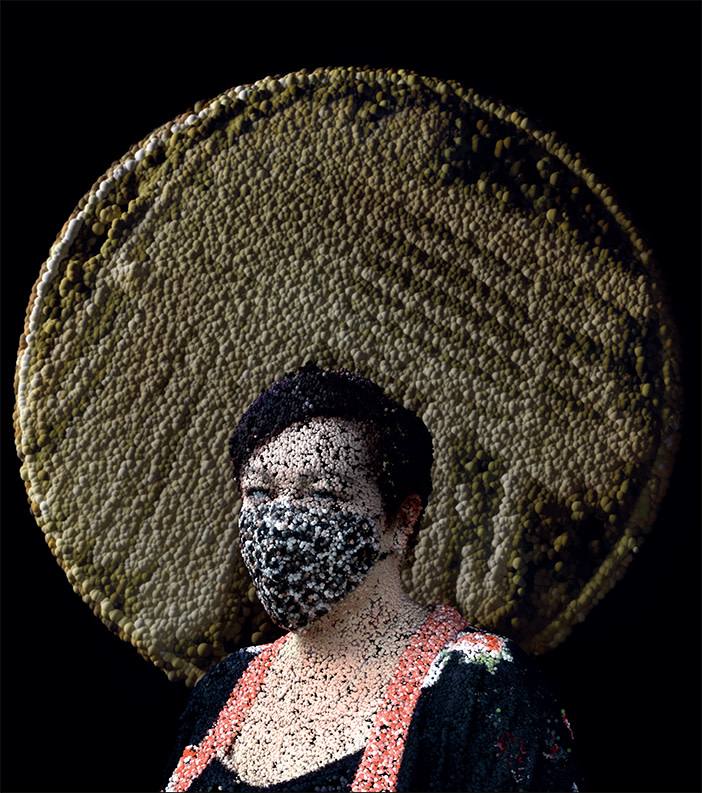
MRC Centre for Medical Mycology at the World Antimicrobial Awareness Week (WAAW)
World Antimicrobial Awareness Week (WAAW) took place this year 18-24 November, and the MRC CMM has contributed to several activities surrounding this event. Four MRC CMM members were featured in the art exhibition “Researching Resistance” by Simon Ryder. Professor Adilia Warris was also interviewed speaking about AMR in fungi and what the MRC CMM is doing to tackle this growing issue.
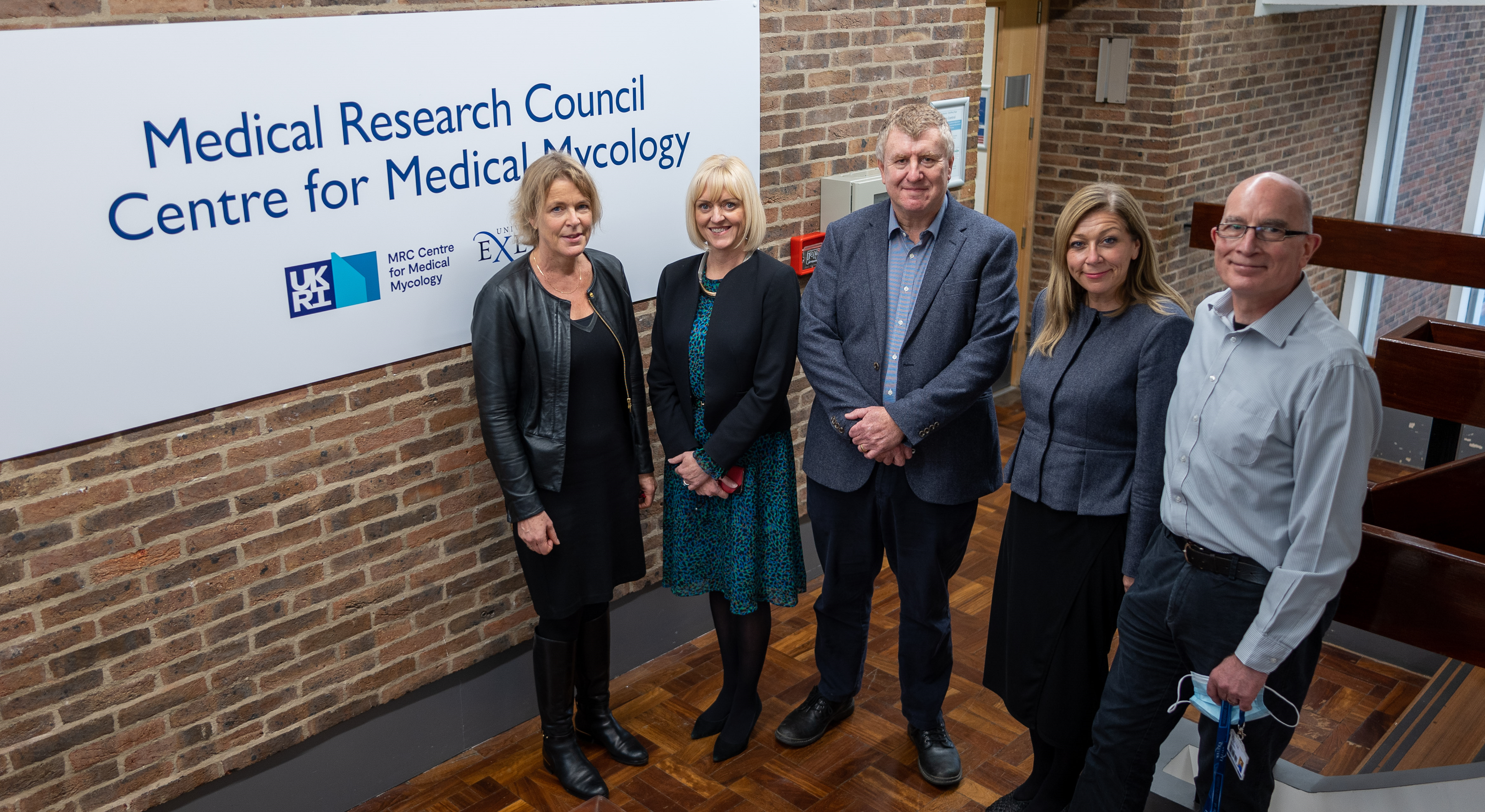
Vice Chancellor, Prof Lisa Roberts visits the MRC Centre for Medical Mycology
The MRC CMM were delighted to welcome our Vice Chancellor, Professor Lisa Roberts, to the MRC Centre on Thursday 11 November.

MRC CMM labs receive silver LEAF award
After achieving a Bronze award in the 2020/2021 academic year, the MRC CMM have received a silver LEAF award this year.

Fungal diseases expert joins University of Exeter
Professor Nelesh Govender, an expert in fungal diseases and antifungal resistance, has been appointed an Honorary Professor at The MRC Centre for Medical Mycology (MRC CMM).

Exeter researcher wins prestigious paediatric infectious diseases award
Professor Adilia Warris, co-director of The MRC Centre for Medical Mycology based at the University of Exeter, has received this year’s Bill Marshall Award for her pioneering paediatric infectious diseases research.

COVID-19 AND ASPERGILLUS CO-INFECTIONS
Read our summary of emerging evidence around COVID-19 and Aspergillus co-infection, and mucormycosis in India, as well as planned studies to assess COVID-19 associated pulmonary aspergillosis.

Antimicrobial resistance expert joins MRC CMM
William Hope appointed Honorary Professor in the College of Medicine and Health

Exeter academics awarded grants for pioneering fungal research
Two scientists from the The MRC Centre for Medical Mycology, based at the University of Exeter, have received prestigious Springboard Awards from The Academy of Medical Sciences for their research into a deadly fungal disease.
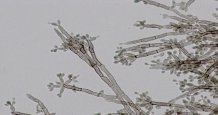
Five-year funding boost for fungal research centre
A leading fungal research centre has received a further five years' funding from the Medical Research Council (MRC).

New arts/science collaboration launched at the MRC Centre for Medical Mycology
Fungi are unique. They are neither plants nor animals and are some of the world’s oldest living organisms. The various fungal species are diverse, with many unique properties: some innocuous, some useful, and some harmful.

MRC CMM Director appointed Babraham Institute trustee
MRC CMM Director Professor Gordon Brown appointed Babraham Institute trustee

Cell biology specialist joins fungal research team
A specialist in cell biology and genetics is set to join the University of Exeter’s leading fungal research centre.

MRC CMM Co-Director Prof. Adilia Warris is deputy PI for the BRACE trial (BCG vaccination to reduce the impact of COVID-19 on healthcare workers)
MRC CMM Co-Director, Prof. Adilia Warris, is deputy PI for the BRACE trial (BCG vaccination to reduce the impact of COVID-19 in healthcare workers).

Meningitis expert joins Exeter fungal research centre
A leading expert on infectious diseases has joined a fungal research team at the University of Exeter.

Study sheds light on killer fungus
Scientists have identified an "Achilles heel" that could help in the fight against a killer fungus.

Mammal cells could struggle to fight space germs
The immune systems of mammals – including humans – might struggle to detect and respond to germs from other planets, new research suggests.

Prof. Gordon Brown elected Royal Society Fellow
Professor Gordon Brown, Director of the MRC Centre for Medical Mycology and a leading scientist from the University of Exeter, has been elected a Fellow of the Royal Society.

Prof. Elaine Bignell joins MRC Centre for Medical Mycology
Professor Elaine Bignell, one of the world’s leading experts in fungal lung disease, has joined the University’s Medical Research Council (MRC) Centre for Medical Mycology from the University of Manchester.

Profs. Elizabeth Johnson and Andy Borman appointed as Honorary Professors at the University of Exeter and the MRC CMM
Profs. Elizabeth Johnson and Andy Borman of the PHE mycology lab appointed as Honorary Professors at the University of Exeter and the MRC CMM.

MRC CMM Researchers win places on GW4 Crucible 2020
MRC CMM Researchers win places on GW4 Crucible 2020

Researchers find new evidence that a fungus can be hard to find
A team of experts have discovered that a common fungus that infects humans can not only predict an imminent attack from the immune system, it will even change its appearance to hide from it.

Lung disease expert to join Exeter fungal centre
A leading expert on how fungal diseases affect human lungs will join the University of Exeter next year.
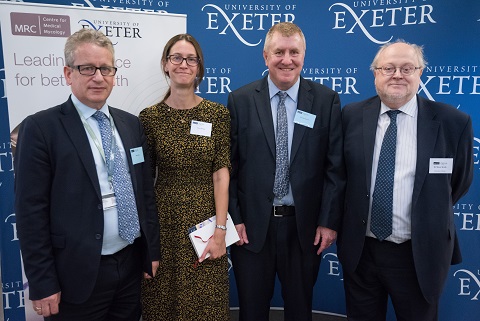
Major fungal research centre moves to Exeter
A top research centre focussed on tackling fungal diseases has relocated to the University of Exeter.
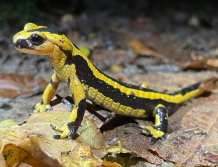
A fire salamander. Credit Jaime Bosch.
‘Jumping genes’ help fungus kill salamanders
A fungus that infects salamanders contains multiple copies of the same “jumping genes”, scientists have discovered.
Jumping genes, called transposons, can “copy and paste” themselves and impact the organism.
Most organisms have some repeated parts of their DNA, some of which are jumping genes, but this can be harmful – and mechanisms exist to prevent or limit this.
However, the new study – led by the MRC Centre for Medical Mycology at the University of Exeter – finds a possible evolutionary advantage of these jumping genes in a fungus called Batrachochytrium salamandrivorans (Bsal).
Not only did they find different versions of these jumping genes repeated multiple times in Bsal’s genome – but the gene in question appears to have duplicated another group of genes that play a role in how severely it affects infected fire salamanders.
“Bsal and related fungal species infect amphibians worldwide, and have been responsible for more than 90 extinctions,” said first author Theresa Wacker.
“Bsal infects the skin of salamanders and newts and causes severe wounds.
“It emerged in Asia, where many newts and salamanders have some tolerance, but it has spread to Europe and is causing European salamander populations to decline.
“Using new sequencing technologies, we found that Bsal has undergone a genome expansion compared to related species – that is to say, it now has a bigger genome with more genes and also more of these ‘jumping gene’ transposons.”
The new study found the ability of jumping gene transposons to copy and paste themselves contributed significantly to this expansion.
“If you think of an organism’s genome as a blueprint, transposons are like having many identical pages,” Wacker explained.
“And sometimes, during the process of copying and pasting, other parts of the book are also copied.”
It appears that this copying and pasting caused by repetitive jumping gene transposons has also amplified some skin-destroying genes.
Having more of these skin-destruction genes allow the fungus to destroy the skin of salamanders more quickly, making it more deadly.”
Senior author Dr Rhys Farrer said repetitive DNA, including jumping genes, is sometimes referred to as “junk” DNA.
“Most organisms have a few jumping gene transposons,” he said.
“In humans, they typically make up less than 1% of the genome, and we have controlling mechanisms to prevent this from rising.
“In Bsal, repeated jumping genes make up about 19% of the genome.
“Transposon jumping genes can interfere with regular gene function and cause problems for the organism – but for Bsal this seems to be outweighed by the advantages.”
The team are now doing further research.
Dr Farrer said: “This kind of gene repetition is probably more widespread in nature than we currently realise.
“If, as appears to be the case, it confers an evolutionary advantage for the pathogen by making it more virulent, it’s not clear why this isn’t much more common.”
The study’s finding shed new light on the evolution of a major amphibian disease, and Dr Farrer called it a “paradigm shift” in terms of identifying repetitive genome content as a driving force behind its pathobiology.
The research team included scientists from Imperial College London, and the study was funded by the Wellcome Trust.
The paper, published in the journal Proceedings of the National Academy of Sciences, is entitled: "Two-speed genome evolution drives pathogenicity in fungal pathogens of animals.”
Date: 4 January 2023

